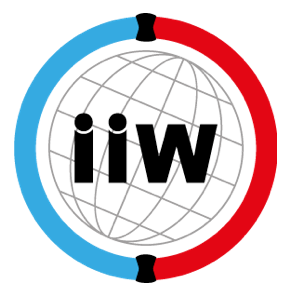>> Educational and training programs for personnel qualification
The use of adhesive bonding as the main joining technique to manufacture components is getting more and more common for many realities. The diffusion of this process produced a growing demand for new working figures characterized by specific theoretical and practical skills to perform and manage the bonding process and all the related activities in a proper way.
IIS meets the needs of this new industrial scenario by offering different educational and training programs specifically developed on the basis of the requirements established by the European Welding Federation (EWF), which are already implemented in many technical codes and industrial standards, such as German DIN 6701 standards or AICQ guidelines for the railway sector.
Particularly, three training programs for the qualification of the following figures have been outlined:
- Adhesive bonding process coordinator at Engineer level (European Adhesive Engineer - EAE)
- Adhesive bonding process coordinator at Specialist level (European Adhesive Specialist - EAS)
- Adhesive bonding operators (European Adhesive Bonder - EAB).
In order to support the pressing market needs, which are strictly linked to an increasing pace of production, IIS PROGRESS organizes different training sessions during the year. In addition, specific in-house training session can be arranged.
>> Customer support and adhesive bonding procedure qualification
The Italian Institute of Welding Group provides a specific assistance service to Customers dealing with adhesive bonding activities, offering the support of qualified EAE personnel to setting up and manage the whole adhesive bonding manufacturing process. Particularly, assistance for the definition of the substrates and adhesives, for the evaluation of the best surface treatment, for the definition of the process parameters, as well as for working instruction editing are provided.
In addition, IIS also give support for the qualification and certification activities performed according to the main International standards (i.e. German standard DIN 6701).
>> Characterization of joint performances
IIS GROUP is provided with advanced laboratory equipment to perform different tests according to the main reference standards, such as UNI, ISO or ASTM. These laboratory tests are carried to define the mechanical/physical properties of the bonded joint or of the adhesive itself, as well as to assess the long term properties of the joint under real working conditions.
Particularly, the following tests can be performed:
- Tensile, compressive, shear and bending strength
- Impact tests
- Static test for the assessment of the adhesive behaviour under creep
- Fatigue tests
- Ageing tests
- Corrosion resistance test
- Characterization of the glass transition temperature.
>> Failure Analysis
The reliability of an adhesive bonded joint is strictly related to its ability to guarantee its own functionality in the different working condition and for all its working life, for which it has been designed. This ability results from complex chemical and physical interactions which occur between the adhesive, the substrates and the environment.
However, there are many external factors that can jeopardize the reliability of a bonded joint, causing a sudden and premature failure with serious economical and safety-related consequences. The influence of the external environment, the presence of contaminants, not expected stress states or, as often occurs, an improper management of the process can be really critical for the joint integrity. Hence, finding out the causes which are at the basis of a failure is extremely complex and require a great experience in order to be able to “read” and understand the indications observed.
IIS GROUP offers its experience and its advanced equipment to support Customers in these complex failure analysis activities, which are necessary to prevent critical and dangerous situations in the future.





